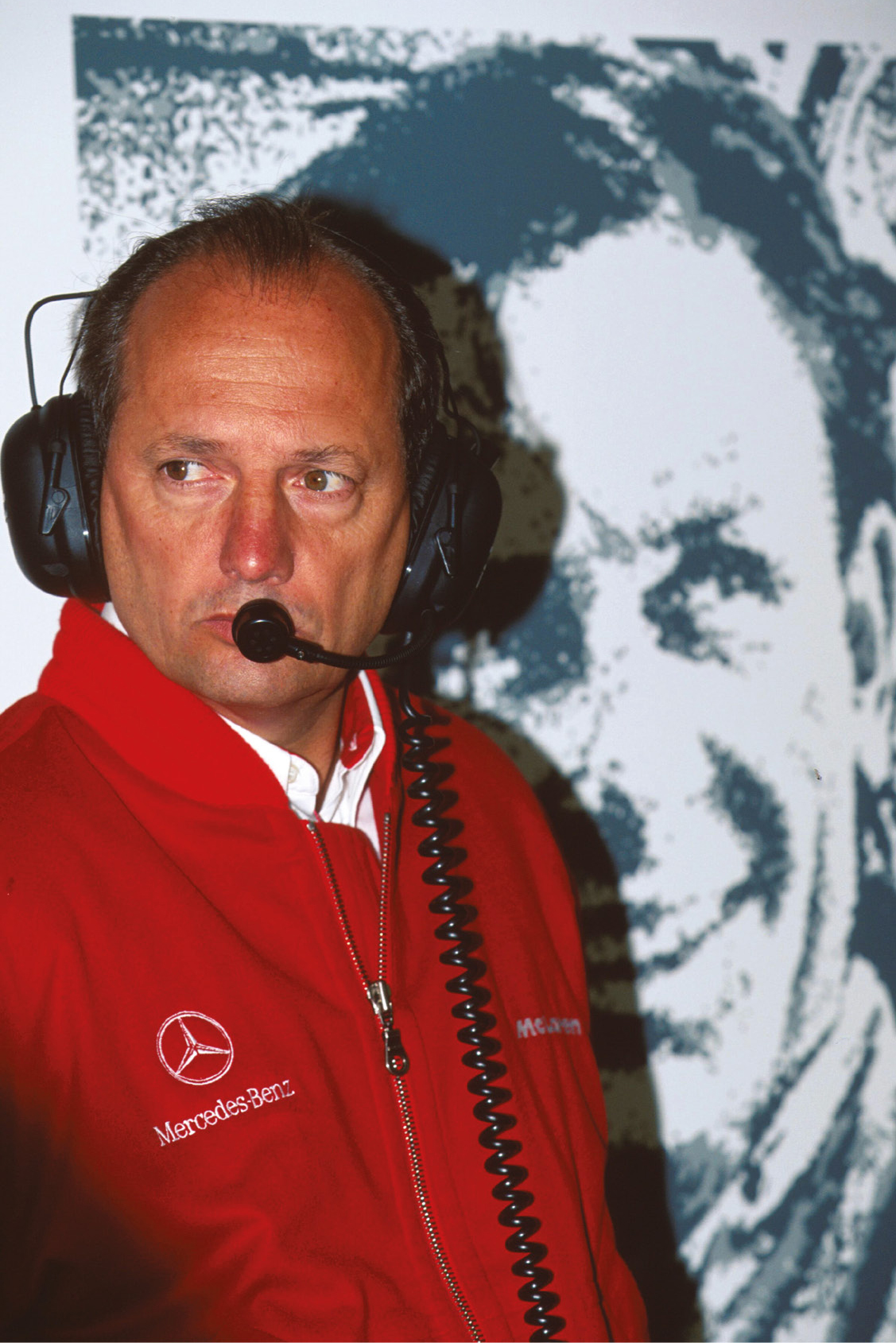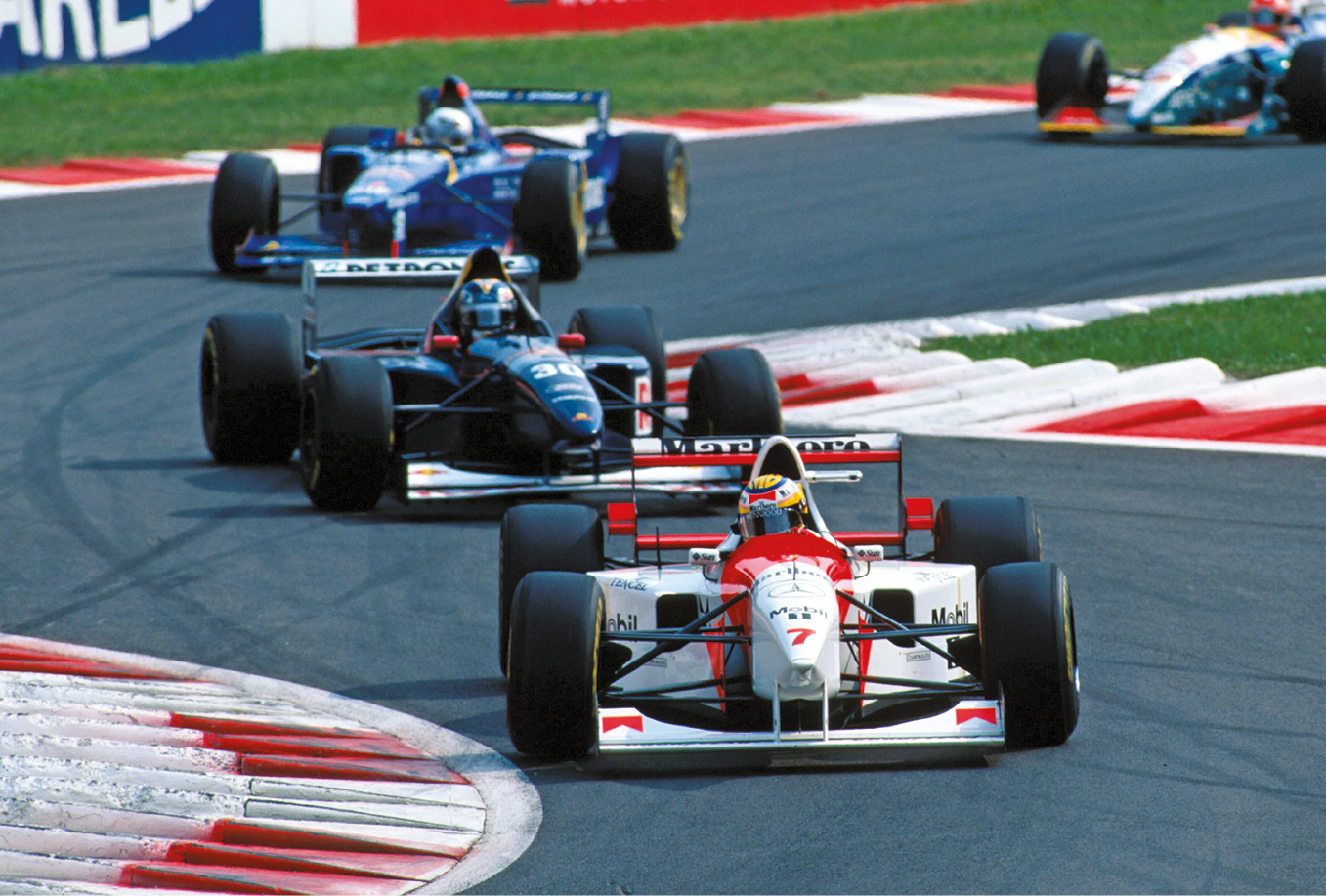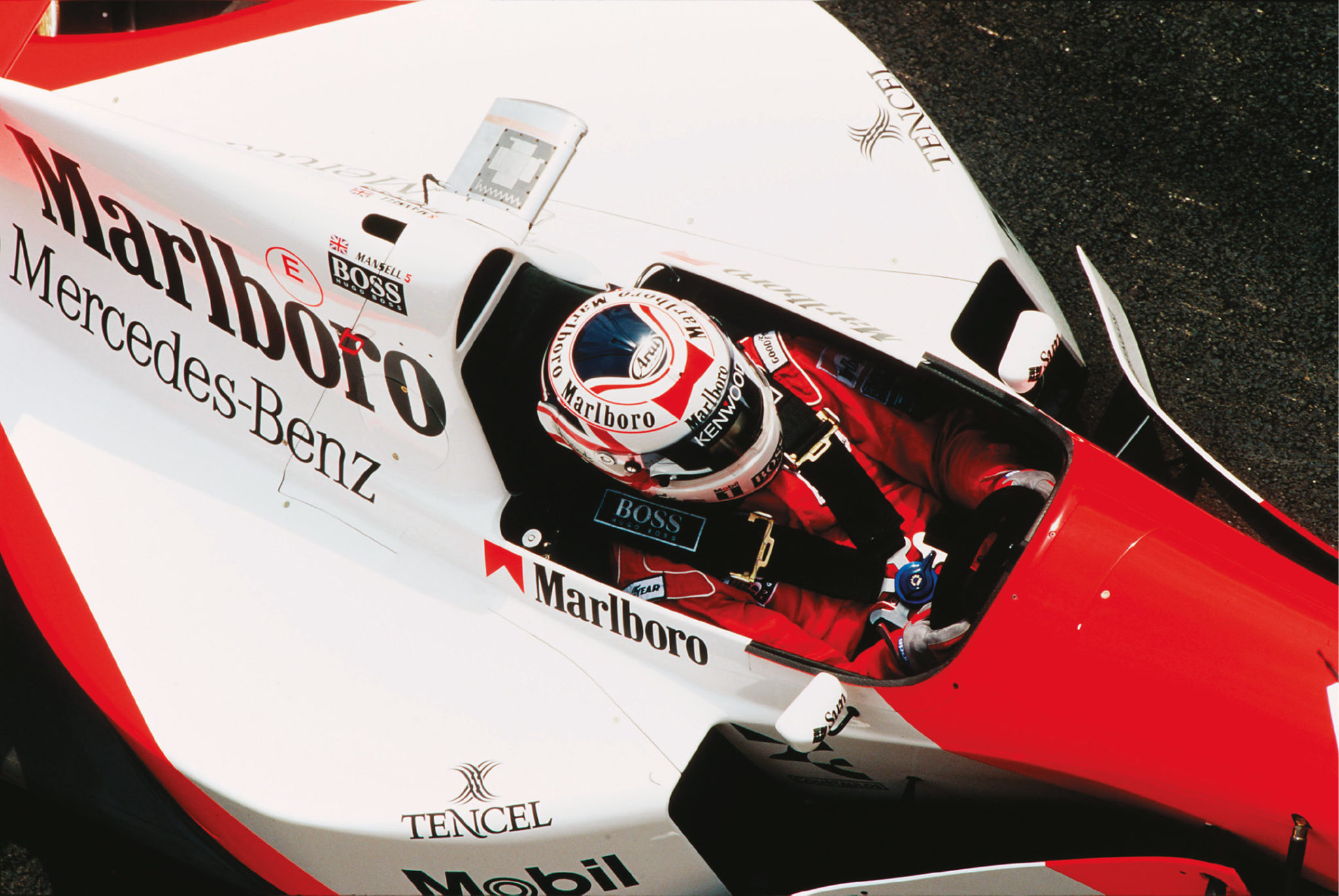
Nomad heads back to the track
South Wales-based racer Terry Davison was unfortunate to damage his rare Nomad Mk3 sportsracing car at Silverstone earlier in the season. But while that car remains under repair, Davison has…
McLaren’s recent Formula 1 struggles have been well documented. The team hasn’t won a grand prix since Brazil 2012, nor scored so much as a podium finish since the following race, Australia 2013. It’s a drought that makes what happened more than 20 years ago seem small, yet such was McLaren’s reputation that two successive winless seasons seemed a huge deal at the time.
For context, the worst season in Dennis-era McLaren had been the first, 1981, when John Watson notched up a solitary victory in the British Grand Prix. The team scored a sprinkling of wins over the next two seasons, then won three straight world titles with Niki Lauda and Alain Prost from 1984-1986. There was a brief hiatus as Williams-Honda mopped up in 1987 (when Prost triumphed on three occasions)… but then McLaren landed a Honda deal all its own, with Ayrton Senna a pivotal cog. Only in 1992, the final year of that alliance, did McLaren-Honda fail to secure an F1 world title double – and it still came away with five wins. Even in 1993, when McLaren spent one season as a Cosworth customer, Senna managed to conjure five grand prix victories against the might of Williams-Renault – a season that some still regard as his finest.
After Senna’s departure, McLaren had a winless year with Peugeot – and then for 1995 switched to Mercedes, initially with Nigel Mansell partnering Mika Häkkinen… or he would have done had the chassis been wide enough to accommodate him. In the end, he appeared only twice in a modified version before walking away from F1 for good.
Häkkinen and Mark Blundell plugged on with the difficult MP4/10 chassis, which was usually capable of challenging only for a spot in the lower reaches of the top six (although Häkkinen did manage a couple of second places). The campaign reached its nadir during the early stages of the European GP at the Nürburgring on October 1, when both drivers slid down the field on a greasy track and were passed by Andrea Montermini’s Pacific – customarily the least competitive chassis in the field. Blundell was also overhauled by Montermini’s slower team-mate, Jean-Denis Delétraz.
Later that week, Alan Henry headed to Woking for a chat with McLaren boss Dennis.

Alan Henry I have heard from a source I regard as ‘satisfactory’ that there is a possibility you could lose your Marlboro sponsorship at the end of next year, if McLaren cannot convince Philip Morris it has the ability to make the team a competitive proposition once again. Benetton and Williams are circling like piranhas…
Ron Dennis I think perceptions of this nature are completely understandable. If you are sponsored by a range of prestige companies who lead in their field, they obviously invest in companies that have similar objectives. We are more than aware of the necessity to achieve maximum exposure for investors – and that is best done by leading races. However, there have been times during this company’s history when it has failed to perform and, following those periods, there have been changes made to restore the team’s competitiveness. I consider that I have a clear understanding of what it takes to win in grand prix racing.
My personal opinion about this challenge is that, if anything, it’s greater than it has ever been. That’s not because of pressures that are coming from third parties, but because of the pressures I’m putting on myself with a view to achieving that. Change for change’s sake is foolhardy and you must be sure that if you alter things you do so to make things better, and not for cosmetic reasons to satisfy those who stand on the outside of the company with opinions that aren’t based on fact.
Part of my job is to give our sponsors a clear understanding of what we’re doing, why we’re doing it, what our strategy is and how we’re addressing the problems as we see them. That process of communication is ongoing. If they subsequently choose to redirect their investments, it would be as a result of either my failure to convey our strategy to their satisfaction, or my failure to lead the company back to success. That I completely accept. It’s my responsibility, it’s not a responsibility that makes me at all uncomfortable. It’s why I’m here and I’m committed to it. Other perceptions, such as those of Mercedes-Benz, are entirely different. They have an even greater desire to succeed, because of the direct relationship between their company and the performance of the car. Given the facts, they understand what we’re trying to achieve and how we’re trying to achieve it. Like McLaren, Mercedes would have liked more success in terms of results, but when we fail – publicly fail – it’s the result of trying to take bigger steps than the opposition, because that’s the only way to catch up during a season. The car has come on leaps and bounds from where we started, but other people have done a better job.
We got caught out in the Portuguese GP at Estoril, where we took a massive chance on introducing a complex set of changes and one element of that package was incorrectly designed. It came about because of the pace at which we’re conducting our development and we paid the price. But that doesn’t mean we’re going to behave like chickens with our heads cut off; we know where we’re going and we know how we’re going to achieve it.
AH When you say ‘incorrectly designed’, d’you mean manufactured or designed?
RD Designed. It did not achieve the desired geometry and was therefore incorrect. But suspension kinematics is a complex subject and it’s not just a question of an individual making a simple mistake – it’s more complex than that and the responsibility falls on several shoulders – including mine, because it’s me that’s been pushing everybody to bring developments through the system, faster perhaps than was practically possible. I’m as guilty as anybody, but I had a desire to improve, to be in a more competitive situation in the races in the latter part of the season. I’m not going to make any excuses. I’ll take the pain of getting it wrong, I believe you have to take steps.
AH From a purely historic point of view, with the greatest possible respect, you are actually wrong about McLaren’s dips in form. Since you took over, McLaren has never had a drought anywhere close to the past couple years.
RD I was referring back to the Team McLaren days, rather than McLaren International…
AH Understood.
RD Your tape is running and it’s very hard to try to convey to you the reasons why, but I know our car hasn’t done a particularly good job this year or last, but there are other factors in play.
AH Changing engines hasn’t helped.
RD I want to stress that in no way is that observation relevant to the last year. We started with our eyes open, with an engine that first ran in January, first raced in March and was then developed in parallel to an intensive test and race programme. The achievements of everybody in that part of the programme have been considerable. I can’t get into the detail of the developments, but it’s almost super-human in terms of what has been done.
AH Can I quote something that you said to me last year: ‘This is now a question of blind faith. I never say it, but I think there’s a high degree of “trust me” about the way McLaren operates. Don’t worry, there is pain before the pleasure but it will come right. I believe you can power through these problems, you just have to stick together. In the meantime some people might choose to leave the company. I hope not. I’ll do anything for anyone in the company so long as there’s a fairness and balance to it.’
RD I would absolutely sign up to that statement right now.
AH To people outside, those who don’t know you, you have an image of being aloof, but d’you think the truth of the matter is that you are perhaps too soft?
RD [pauses]: Hmmm…
AH You’ve been incredibly loyal to a lot of people.
RD You’d better turn the tape off…

AH [Resuming several minutes later]: Mercedes-Benz is not just a fairweather friend, is it, satisfied to be in the top four or five?
RD After the European GP, which of course was less than spectacular for us, with two drivers struggling on cold, slick tyres in the early stages of the race, there was a meeting between myself, representing McLaren-Mercedes, Roger Penske, representing Mercedes’ Indy involvement, and Hans-Werner Aufrecht, representing the DTM. This was a previously scheduled meeting to discuss the overall strategy and results of Mercedes-Benz’s motor sport programmes. Roger had his embarrassment at Indianapolis [both cars failing to qualify], I had our embarrassment at the Nürburgring and other times we haven’t achieved this year, Herr Aufrecht had the satisfaction of having achieved but was being challenged in respect of the series’ integrity. Nobody was sitting there with a smug grin; we were having a business-like discussion about the negative aspects of these programmes. The overwhelming purpose was Mercedes’ desire to convey to all of us the commitment the firm has to this motor sport strategy.
AH With a three-pronged approach?
RD Yes, this is not an involvement based on the enthusiasm of specific individuals within the organisation. It is a clear motor sport strategy underpinned by sound marketing philosophies. And while each of the teams had reason to feel uncomfortable, the simple fact was that Mercedes communicated to all of us its unswerving commitment to achieving its goals. The questions were more designed to understand how they could contribute more to the objective of achieving success.
When I left that meeting I felt that whatever position we found ourselves in, the one partner that would be solidly beside us would be Mercedes.
That’s also how I feel about Philip Morris and some of the other companies – there’s an unswerving commitment. Yes, Walter Thoma [president of Philip Morris Europe] is tough, he pushes and demands and needs to understand, but he’s never been a rug-puller and I don’t anticipate that he will ever be. If our performance does not justify the level of commercial support that we receive from any of our sponsors, then the process of withdrawal would not be sneaky, behind our backs, it would be face to face.
AH I don’t think I was suggesting…
RD No, no – I’m not talking to you, I’m talking to the world. It would be a face-to-face, professional approach, but I do not believe – rightly or wrongly – that we are in that position. We know exactly what Philip Morris’s objectives are, we know what we need to do and they know we’re committed to doing it.
AH Let me get this absolutely straight in my mind. Are you dismissing any possibility that they might pull out?
RD Yes. They trust me, believe in the company and will give us the time to effect a return to competitiveness.
AH I did speak to somebody there who said that they were concerned and that there were technical issues that needed to be addressed.
RD I don’t think there’s anything I’ve said that is inconsistent with that.
AH So you feel the strength and depth of your relationship will overcome short-term hiccoughs?
RD Absolutely, absolutely.

AH One more question. Having spent £16.50 yesterday on Nigel Mansell’s autobiography, I sat up until 1am reading it. I was struck by the crudity with which he criticised McLaren in a sort of cumbersome, bludgeoning way. Any reaction?
RD I feel disappointed by his comments. That disappointment doesn’t come from whether or not his views contain elements of truth, or are accurate, it comes because I think Nigel has many, many weaknesses, some of which I learned first-hand. I just think it’s sad that he should put myself, McLaren and other companies for which he’s driven into a position where they have to make a choice, either to highlight his weaknesses or let the moment pass. I believe it is better to be bigger and more professional than he has obviously chosen to be and just let him have his say. As I’ve said before, the problem with autobiographies is that they inevitably present one side of the argument in a way that favours the individual and colours some elements of the truth.
AH Have you given your own autobiography or biography any thought?
RD Assuming the individual has had a relatively colourful life, I think a good, well-written autobiography hurts so many people that it doesn’t justify its existence. I mean, d’you think I’d have any pleasure in exposing Ayrton Senna’s weaknesses, or sharing with the world moments when drivers have lost control emotionally, or times when people have made massive mistakes or calculations that, sometimes, jeopardised drivers’ lives?
Post-script: After a relationship with McLaren dating back to 1974, Marlboro split from the team at the end of 1996 in order to focus on a relationship with Ferrari. Ron Dennis secured alternative tobacco sponsorship from West and won the opening race of the 1997 campaign, with David Coulthard in Australia, before securing back-to-back championship titles with Mika Häkkinen at the decade’s end.

It was an email from the blue. I’d met Nick Henry many years previously, when he was a teenager accompanied by his dad Alan in the Silverstone paddock, and he felt the moment for reacquaintance was ripe. Specifically, he had come across boxes of interview tapes in his late father’s old office and wondered whether they might be of interest to Motor Sport. Just a touch…
We finally met for breakfast at The Milk Shed, near Bicester, and a bag of jumbled cassettes indicated greater potential than we could have dared to anticipate: Jenks & Senna, Ron Dennis, Dan Gurney… it was a veritable treasure trove of voices from a bygone age.
The tapes represent valuable parts of a lifetime’s work and we will bring more of them to the page over the coming months.